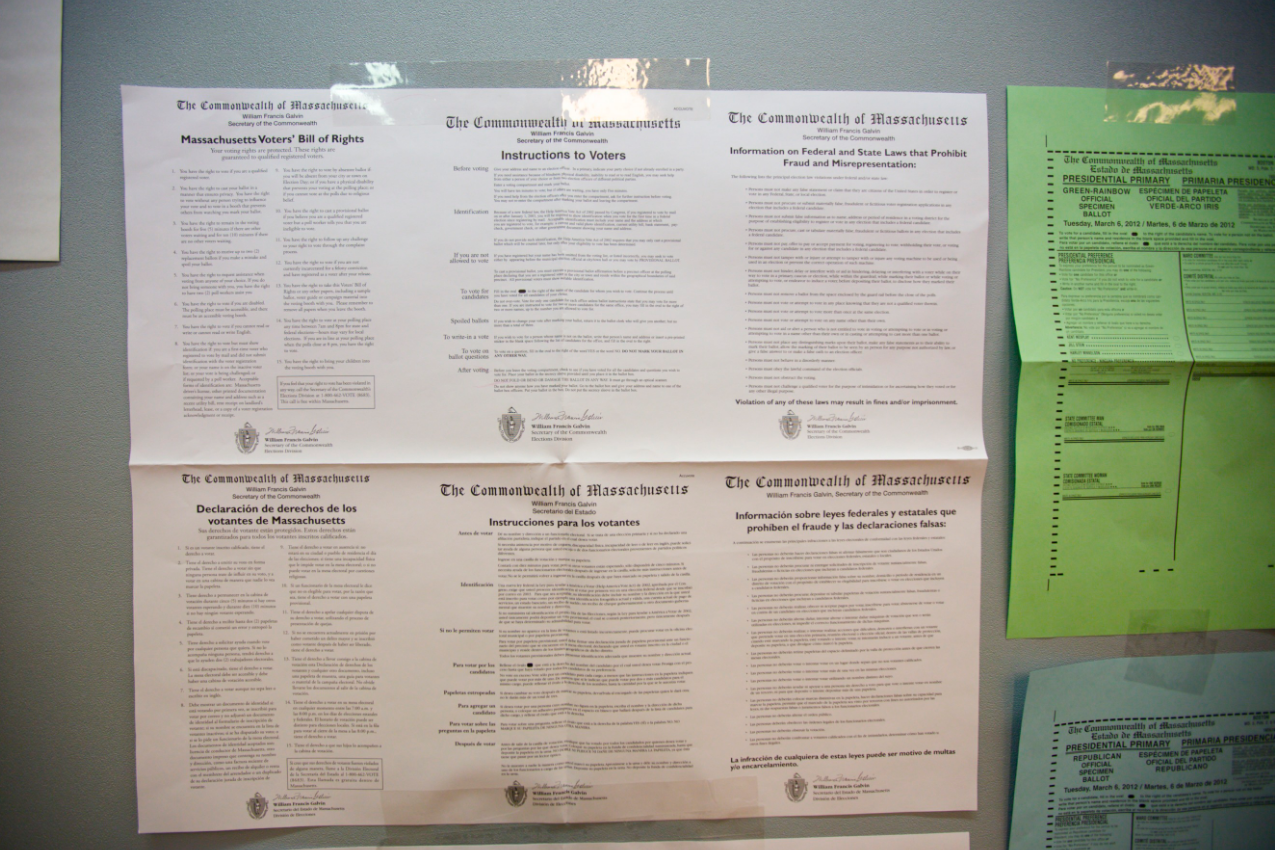“Do you approve of a law summarized below, which was approved by the House of Representatives and the Senate on May 26, 2022?”
In November, this question — pertaining to the ability of undocumented residents to obtain driver’s licenses — will appear on the ballots of Massachusetts residents voting in the general election. Yet you would not know that from the printed voter information guide provided each year by the Secretary of the Commonwealth.
The law it refers to would allow people without proof of legal residence in Massachusetts to get driver’s licenses in the state. Approved by the state legislature in June, the law is now being challenged by a ballot referendum, allowing its opponents to call its justifications into question via popular vote. These opponents argue that it would undermine identity verification policies and open the door to noncitizen voting. The increased road safety the law seeks to provide is argued to be secondary to these problems.
This law was years in the making; it was originally vetoed by Gov. Baker and then overridden by the state legislature. Without a ballot referendum, the law would go into effect on July 1, 2023. But now, it will only continue if a majority of the voters vote “yes.”
The law would allow for people who cannot prove lawful residence to obtain a Massachusetts driver’s license. It would also complicate the license acquisition process by blocking citizenship status from being recorded while attempting to ensure that noncitizens are not immediately registered to vote.
Those who oppose the law see this as the major problem. If the Registry of Motor Vehicles cannot share information about citizenship status, they will not be able to prevent noncitizens from registering to vote. This is the argument of Fair and Secure MA, an organization opposed to the law that provided the justification for the “no” vote in the online version of the Voter Information Packet. They also argue that the RMV cannot verify identity documents from overseas and legal immigrants are put at a disadvantage.
Supporters of the law who urge a “yes” vote include the Massachusetts Immigrant and Refugee Advocacy Coalition, Yes on 4 for Safer Roads, and the 42 police chiefs of the MA Major Cities Chief of Police Association. The vice president of the Massachusetts Major Cities Chief of Police Association, Lawrence Police Chief Roy Vasque, supports voting “yes” as it is “just common sense.” The law ensures that all drivers have insurance and are properly trained to drive, making the roads safer and the job of law enforcement officials easier. It is also not unprecedented, as 17 other states already allow applicants with foreign documents and proof of residence to get driver’s licenses.
Yet due to the late addition of the question to the ballot, these arguments have not been shared with voters through the official voter information packet, “Massachusetts Information for Voters,” alongside the first three questions. This has the potential to sway voter decisions at the ballot box without access to unbiased information and could open a pipeline through which voters could be misinformed.
Once the law was passed in June, opponents needed to gather 40,120 signatures to force the question onto the November ballot through a ballot referendum. To make it into the printed packet, petitions had to be submitted by July 6, but the referendum petition was not received until September 7. However, the petitioners were successful because the petition was submitted within 90 days after the passing of a new law and with more than 71,000 signatures. This qualified the question for the November ballot as Question #4.
But the voter information packet deadline was long past by September 7. In fact, many booklets were being distributed that week. The voter information packet is the one-stop guide to statewide elections and ballot questions for each election that is delivered to every registered voter in the state. This year, it contained the text and “yes” and “no” arguments for the first three ballot questions, but not the fourth. Ballot Question #4 only appears on the state voting website. Though the booklet recognizes the potential for additional questions visible only online, this method of information sharing disadvantages voters without access to the internet. It is also printed at the end of the packet, making it difficult for voters to know that a fourth ballot question even exists.
Though ideally every voter would read the voter information packet in full in advance of the election, it is likely that many will use it only days before the election, skimming for important information and missing the fourth question entirely. Without access to unbiased information on the arguments for and against the law, voters may enter the ballot box unprepared to vote on such a contentious issue.
While the packet provides a necessary overview of the ballot questions, it is also possible that not many voters take advantage of it. However, the packet is a crucial source of reliable and unbiased information, unlike many online sources that voters may use in its place to educate themselves about the question. Question #4 is a failure in this regard.
Although it is too late for Question #4 to be properly included in voter information materials, this referendum can bring about a conversation over ensuring fair elections and transparent information in Massachusetts in case of future problems. It is unclear if and how the late addition of the question will skew the results of the election, but it could prevent voters from being fully informed on Election Day and challenge the credibility of the final decision.
Image by BU Interactive News is licensed under CC BY 2.0.



